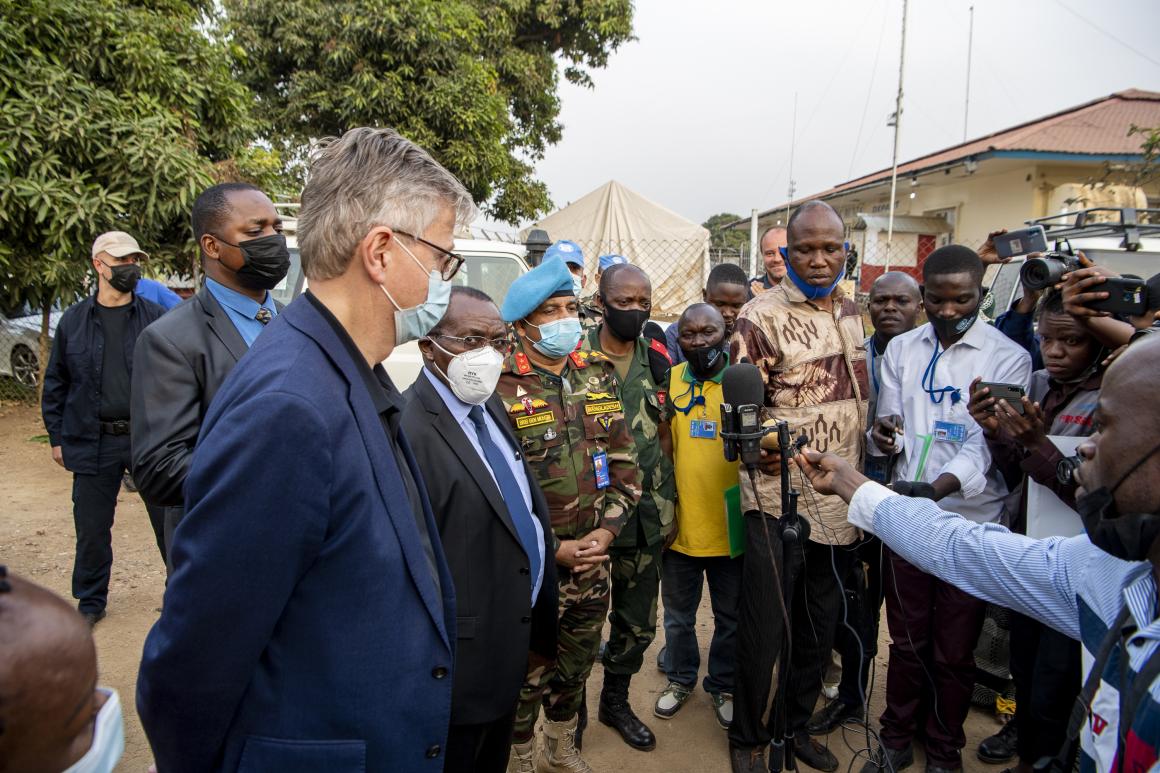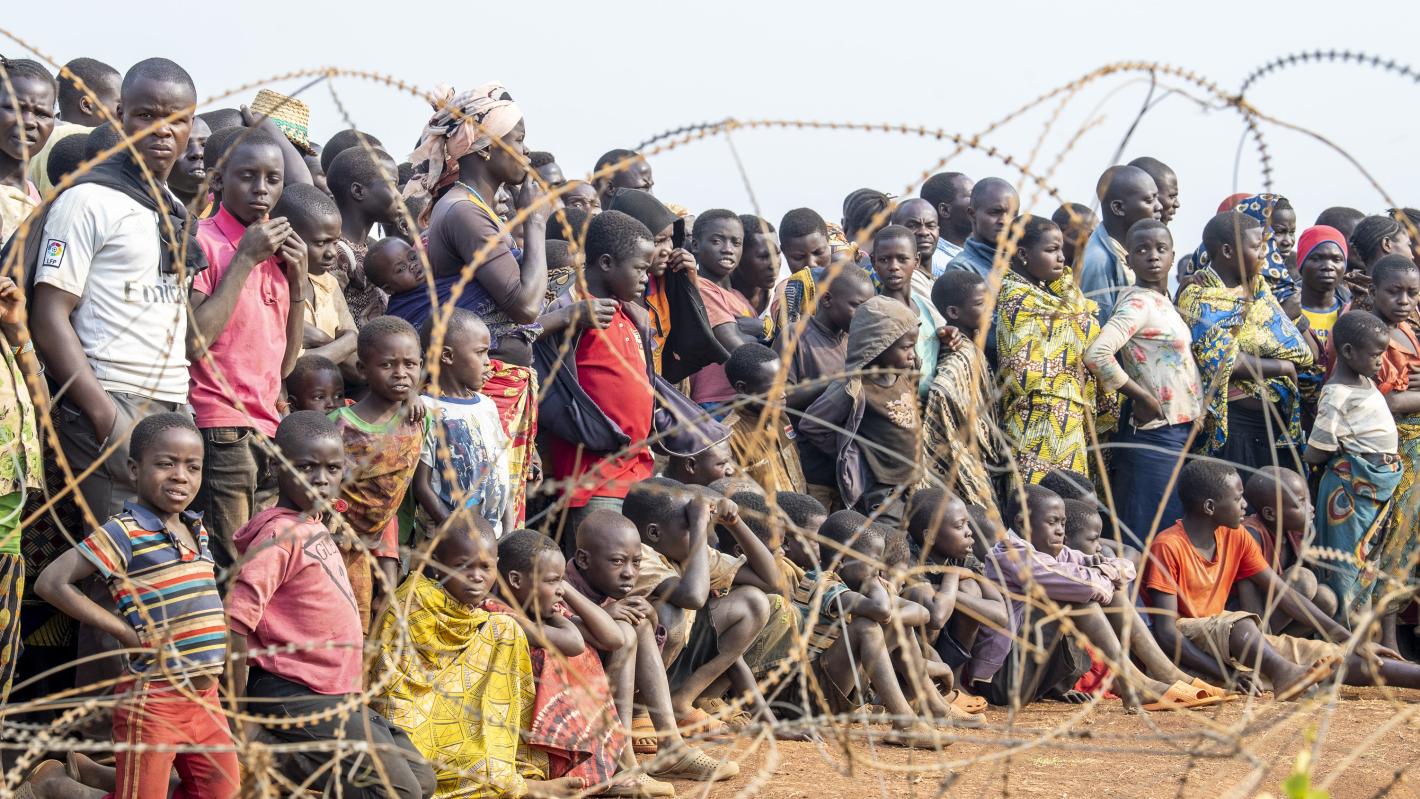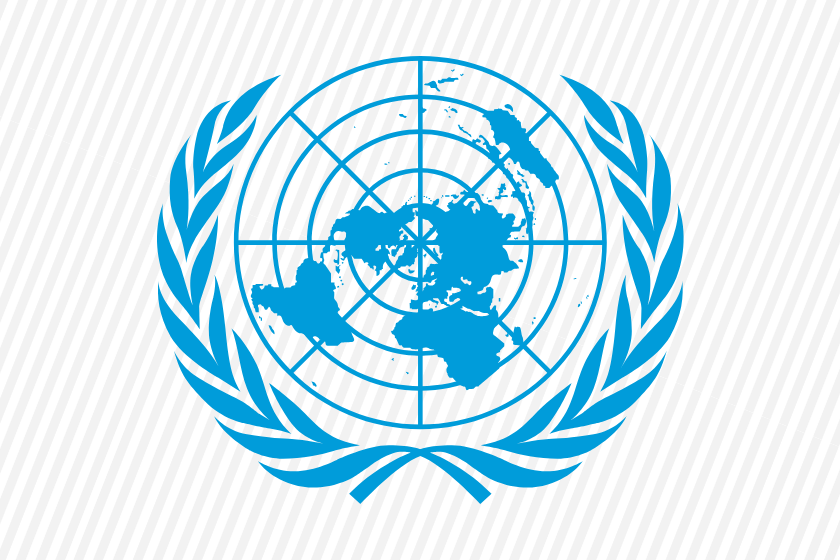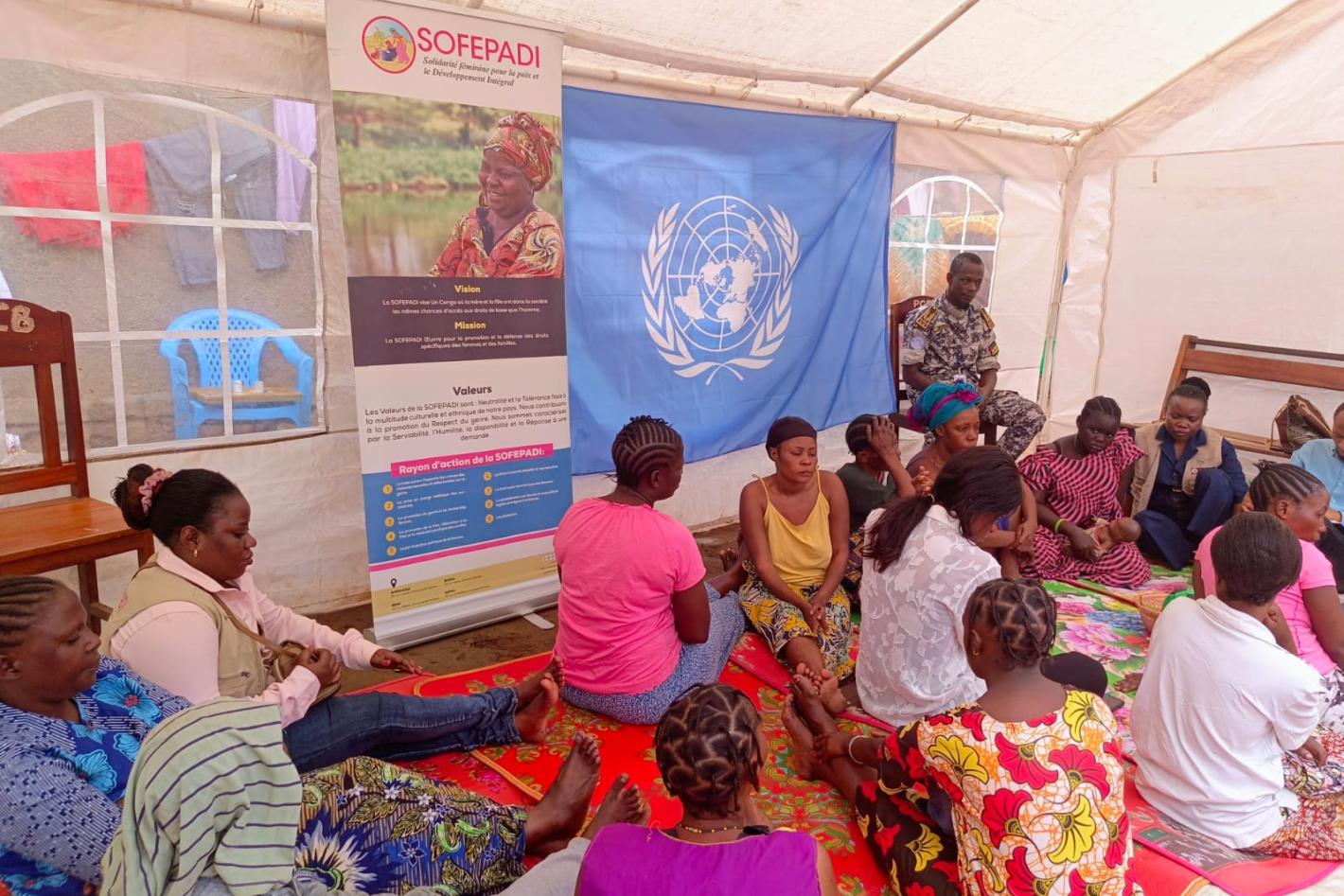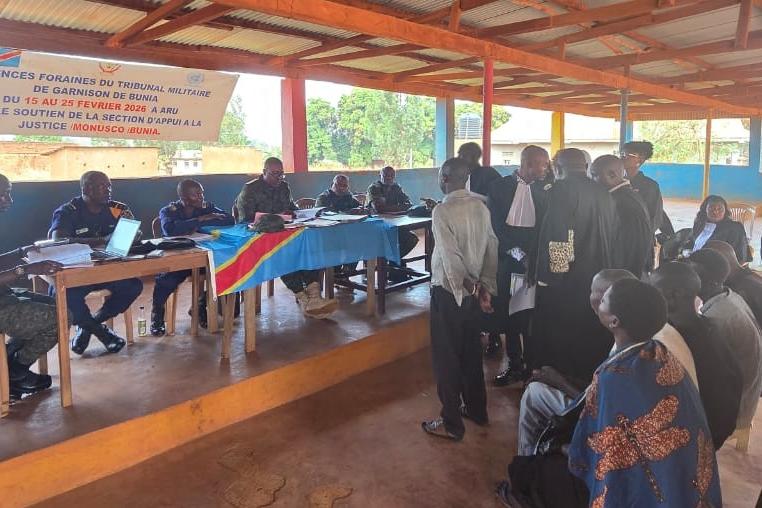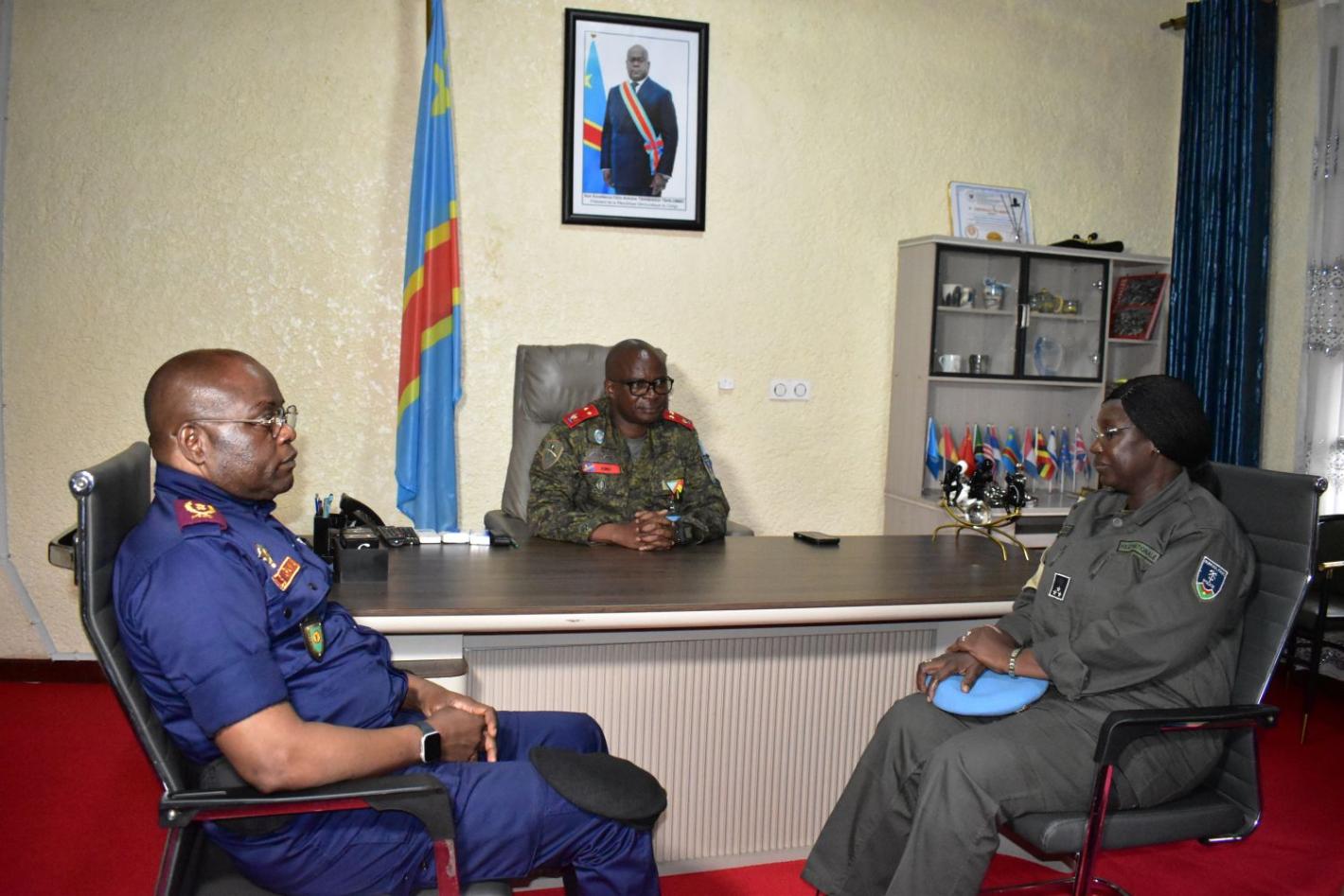"I think we really need to continue and intensify our efforts together (...) There is a need for us to continue to work together so that the [displaced] populations can return to their homes," the UN Under-Secretary-General for Peace Operations, Jean-Pierre Lacroix, said on Tuesday 22 February, on his return from a visit to the Roe camp for the displaced in Ituri. The head of UN peace operations arrived the same day in the DRC for a three-day visit. After Ituri, he will travel to the capital Kinshasa, via Goma in North Kivu.
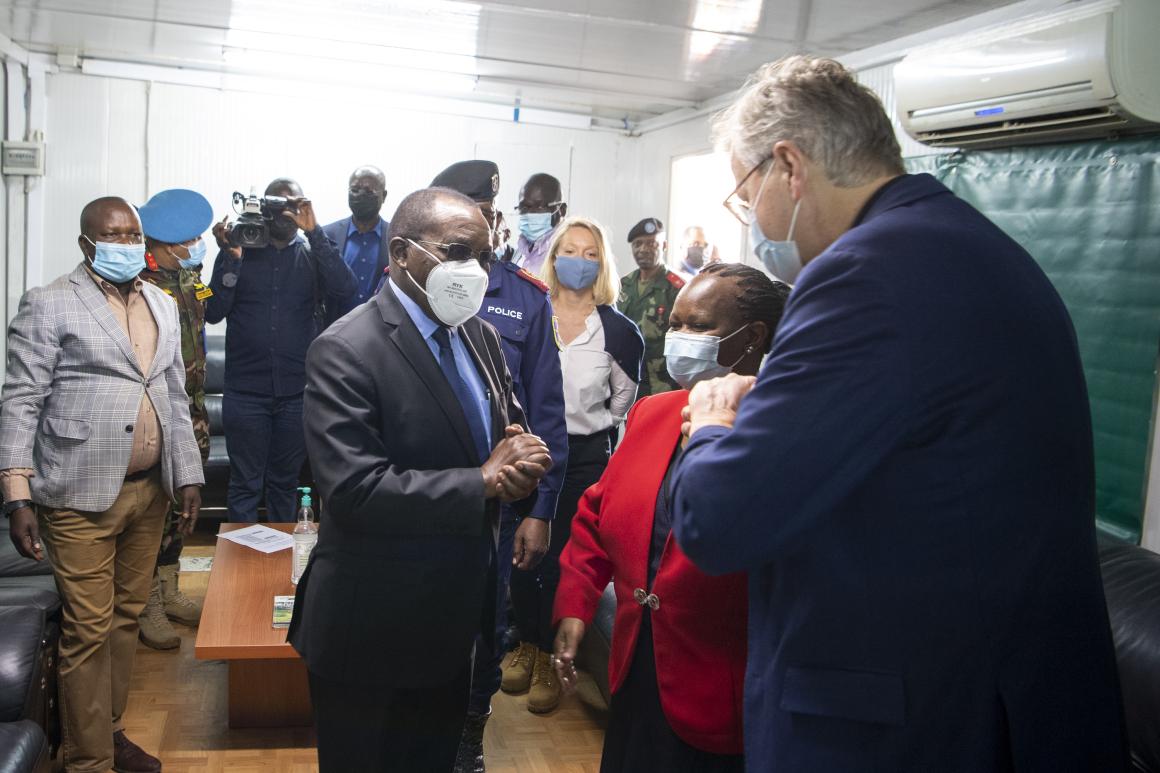
Arriving shortly before 1pm local time in Bunia, Jean-Pierre Lacroix was joined by the Congolese Minister of National Defence, Gilbert Kabanda, who came specially from Kinshasa. Together with the head of MONUSCO, Bintou Keita, her deputy in charge of operations and protection, Khassim Diagne, the UN force commander in Congo, General Afonso Da Costa, and the head of the MONUSCO office in Ituri, Josiah Obat, they reviewed the security and humanitarian challenges facing the province of Ituri, which has been under a state of siege since May 2021. In this province, the activities of local and foreign armed groups have resulted in more than 1.8 million displaced people across the province.
Restoring State authority
From Bunia, Jean-Pierre Lacroix and those accompanying him travelled to Roe, 80 km away, in the territory of Djugu, where one of the largest camps for displaced people in the province is located, with over 65,000 people. These people have fled the abuses committed by armed groups in their villages. For these displaced people, this visit shows that the Ituri crisis remains a concern for the international community. And it reassures them that a solution to their problems will be found.
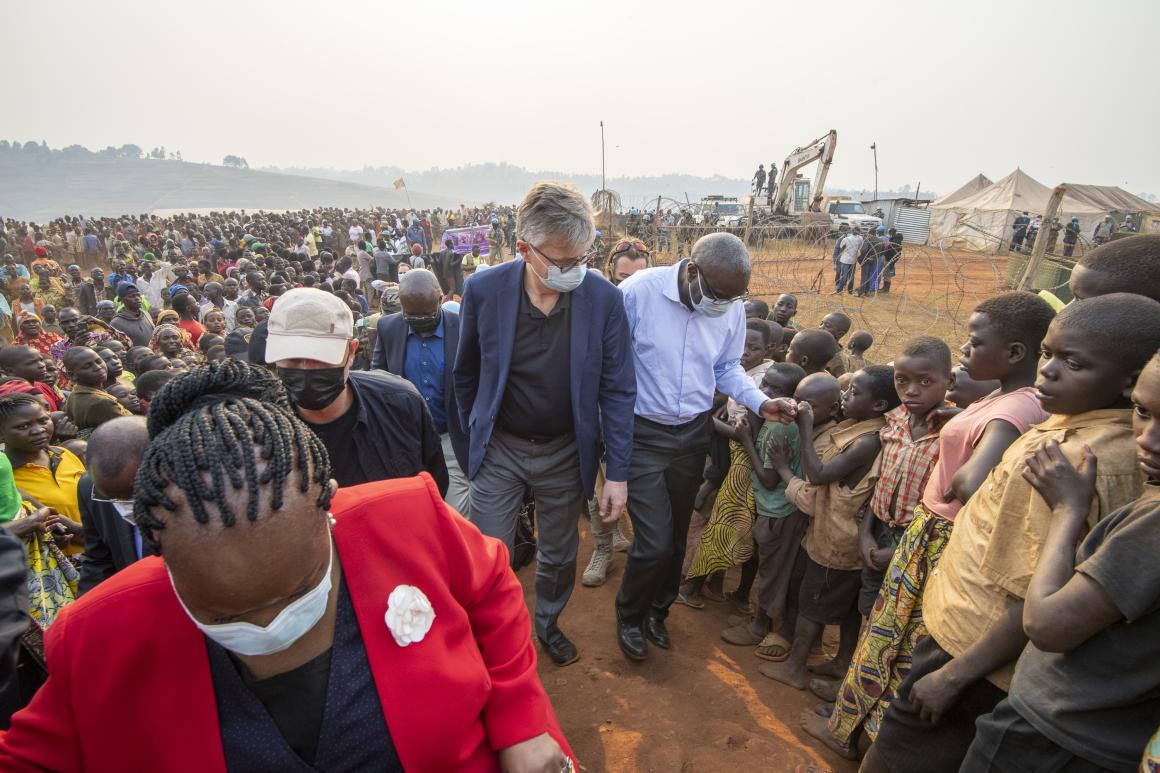
Notables, traditional chiefs, civil society actors and representatives of the displaced have all insisted on the necessity and urgency of restoring State authority to allow the displaced to return to their original areas. This should be done using all possible mechanisms, including negotiation, force, disarmament and demobilisation of armed groups.
All these interlocutors said they are tired of counting the dead almost every day, in addition to other serious human rights violations committed by these armed groups, including rape, murder, etc. Humanitarian workers working with these vulnerable people described their needs as enormous compared to the resources available to alleviate this suffering.
Strengthening UN support
In response, Jean-Pierre Lacroix said that the United Nations will strengthen its support to the government for peacekeeping, the disarmament process for armed groups, and humanitarian assistance. He assured the displaced that the UN and the government are working "hand in hand". This, he said, "is very important, because it is the key to success.
"We have to continue to intensify the efforts. And I know that this reflects the state of mind of our colleagues in MONUSCO, our Special Representative, Bintou Keita, and all colleagues; this also the frame of mind of the Minister [of National Defence] and the Congolese government. People are suffering and they need security. They have told us so forcefully; they need humanitarian aid to be reinforced," he said.
Jean-Pierre Lacroix assured that the UN attaches great importance to the fact that "Ituri is not forgotten". "I believe that we really need to continue and intensify our efforts together. The displaced population is asking that there be no impunity for the crimes committed against them. I believe that beyond these issues, there is a need for us to continue to work together so that people can return home," explained the UN diplomat.
Finding lasting solutions
During the press briefing at the end of his visit to Ituri, Pierre Lacroix insisted on the need to "find sustainable solutions (...) that allow communities to be appeased, reconciled", including by clearly addressing key issues such as access to natural resources.
"This region is a rich region with a lot of competition over its resources. How can we ensure that these issues are dealt with in such a way that there is no impunity and how can we ensure that dialogue is resumed and intensified between the different communities? The Congolese authorities and we ourselves are completely determined to continue to intensify this," said Jean-Pierre Lacroix.
